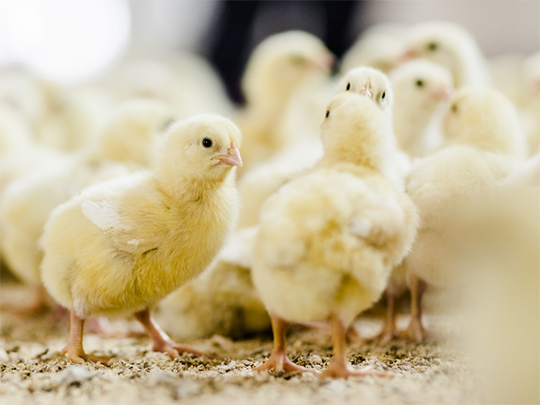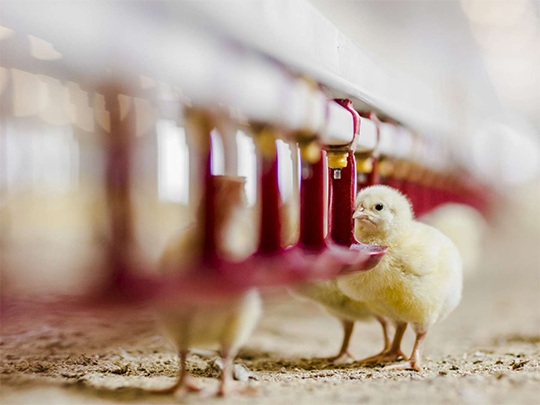What is the effect of heat stress in monogastrics (part 3)?
Heat stress usually leads to a reduced feed intake. Did you know that also the immune system of farm animals is negatively effected by heat stress? Discover more in this third part of our series about heat stress in monogastrics...
Heat stress usually leads to a reduced feed intake and thus also to an insufficient intake of essential nutrients, vitamins, minerals and amino acids. However, the need for these nutrients is particularly high under heat stress conditions and in the subsequent recovery phase.
But did you also know that heat stress not only affects feed intake or intestinal barrier, but also the immune system?
Heat stress leads to an overall immunosuppression in livestock, representing another possible mechanism explaining the increased susceptibility of animals to illnesses.
In poultry, heat stress suppresses the innate and adaptive immunity. Broilers under heat stress have shown lower levels of total circulating antibodies, as well as lower specific IgM and IgG levels against Newcastle disease virus and infectious bursal disease virus (Niu et al., 2009; Akhavan-Salamat et al., 2016; Sohail et al., 2010).

Let’s have a closer look on the effects of heat stress on the immune system
Exposure of chickens to a high temperature also decreases the percentage of CD4+ T cells and CD8+ T cells, which impairs the cellular immune response (Khajavi et al., 2003; Trout and Mashaly, 1994).
Moreover, heat stress has a negative impact on intestinal mucosal immunity. The intestinal mucosa is an important barrier against pathogen invasion.

A mucus layer covers the luminal epithelium, and the lamina propria tissue below harbours a wide range of immune cells, including intraepithelial lymphocytes, regulatory T cells, secretory IgA cells and others.
Under heat stress conditions, the integrity of the mucosal epithelial cells is compromised, allowing bacteria and other antigens to invade into the lamina propria. The massive invasion of antigens triggers inflammatory processes.
Did you know?
The expression of IL-10 and IL-4 from the intestinal mucosa has been shown to decrease in heat-stressed animals, indicating an impairment of anti-inflammatory function and immune cell proliferation. Additionally, the expression of Toll-like receptors decreases, reflecting attenuation to resist bacterial invasion (Liu et al., 2012).
Heat stress has also been demonstrated to influence cellular immunity in swine. Exposure to heat stress reduced the proliferation of porcine T cells in peripheral blood (Kelley, 1985). Jensen et al. (1983) found that phytohemagglutinin skin-test reaction was weakened in barrows under heat stress, which is a reliable indicator for assaying cellular immunity. Heat stress also has been shown to cause neutrophil infiltration in ileum and inflammation, which worsens the integrity of the intestinal barrier (Pearce et al., 2013).
References upon request
Have you already read about heat stress management in poultry?

Anne Oberdorf
Anne has always been fascinated by the unknown, the diversity and beauty of nature. Her love for nature brought her to Delacon in 2018 after studying agricultural sciences, where she worked as Technical Communications Manager and later as Product Manager Aquaculture. Since February 2021, she has been taking a new, natural career path outside of Delacon.










